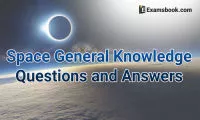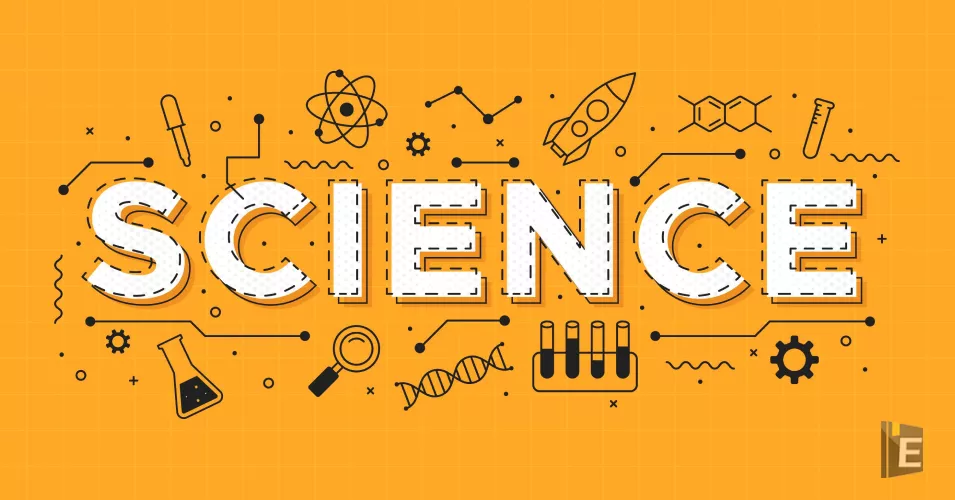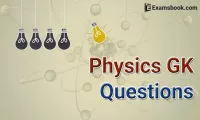- Free Test Series, Mock tests and Practice Tests
- Time proven exam strategies
- Exam analysis and simulated tests
- Hand-on real time test experience

Recently Added Articles View More >>
Welcome to the General Science Quiz with Answers blog, your ultimate destination for enhancing your scientific knowledge through fun and engaging quizzes! Whether you're a student, teacher, or lifelong learner
Welcome to our General Science Quiz and Answers Blog, where curiosity meets knowledge! Here, we delve into the fascinating world of science, covering a broad spectrum of topics ranging from biology and chemistry to physics and beyond.
Welcome to our Biology General Knowledge Quiz with Answers blog! Delve into the fascinating world of life sciences with our curated collection of questions designed to test your understanding and pique your curiosity.
Welcome to our Environment GK Quiz and Answers blog! Explore and test your environmental knowledge with our engaging quizzes covering conservation, climate change, biodiversity, and sustainability.
Welcome to our comprehensive guide designed to help you conquer basic science quizzes for competitive exams. Whether you're preparing for entrance tests, job interviews, or academic competitions, having a strong foundation in basic science is essential.
Boost Your Scientific Skills: Dive into this Science GK Quiz for Competitive Exams! Are you ready to test your knowledge in the world of Science GK Quiz? Delve into this captivating quiz designed to challenge your understanding of various scientific disciplines.
Exploring the Wonders of Science and Technology: A Journey through GK Questions," where curiosity meets knowledge! In this digital space, we embark on a fascinating voyage through the realms of science and technology, unravelling the mysteries that shape our modern world.
The General Science GK Quiz Questions cover a wide spectrum of scientific knowledge that spans various disciplines, aiming to test and expand one's understanding of the natural world. The questions can range from fundamental concepts to intriguing phenomena, ensuring a well-rounded assessment of your knowledge.
Most Popular Articles
Most Popular Articles
Recently Added Questions
- 1East to Westfalse
- 2West to Easttrue
- 3North to Southfalse
- 4South to Northfalse
- Show Answer
- Workspace
- SingleChoice
Answer : 2 West to East
Explanation :
Geostationary satellites are located exactly above the Earth’s equator and revolves around the Earth in a circular orbit. Their revolving speed and direction (West to East) are exactly same as that of the Earth, which makes it look stationary from the Earth’s surface.
ISRO launched the world’s first satellite dedicated to education, the EDUSAT in the month of–
644 0 651fcd2143084a0760f4e99f- 1June, 2004false
- 2July, 2004false
- 3August, 2004false
- 4September, 2004true
- Show Answer
- Workspace
- SingleChoice
Answer : 4 September, 2004
Explanation :
EDUSAT or GSAT-3 is a communications satellite which was launched on 20th September, 2004 by the Indian Space Research Organisation. EDUSAT is the first Indian satellite built exclusively to serve the educational sector. It has revolutionised classroom teaching through IP based technology
- 1Programme Control Blockfalse
- 2Process Control Blocktrue
- 3Process Communication Blockfalse
- 4None of the abovefalse
- Show Answer
- Workspace
- SingleChoice
Answer : 2 Process Control Block
Explanation :
Process Control Block (PCB, also called Task Controlling Block, Task Structure or Switchframe) is a data structure in the Operating System kernel containing the information needed to manage a particular process.The PCB is the manifestation of a process in an Operating System.
- 1New Delhifalse
- 2Bengalurufalse
- 3Punetrue
- 4Patnafalse
- Show Answer
- Workspace
- SingleChoice
Answer : 3 Pune
Explanation :
The National Chemical Laboratory (NCL) is an ~ Indian Government laboratory based in Pune, popularly known as NCL, a constituent member of the Council of Scientific and Industrial Research (CSIR) India, it was established in 1950
- 16 kmfalse
- 21000 kmfalse
- 33600 kmfalse
- 436000 kmtrue
- Show Answer
- Workspace
- SingleChoice
Answer : 4 36000 km
Explanation :
A geostationary orbit, geostationary Earth orbit or Geosynchronous Equatorial Orbit (GEO), is a circular orbit 35786 km (22236 mile) above the Earth’s equator and following the direction of the Earth’s rotation. An object in such an orbit has an orbital period equal to the Earth’s rotational period (one sidereal day).






















